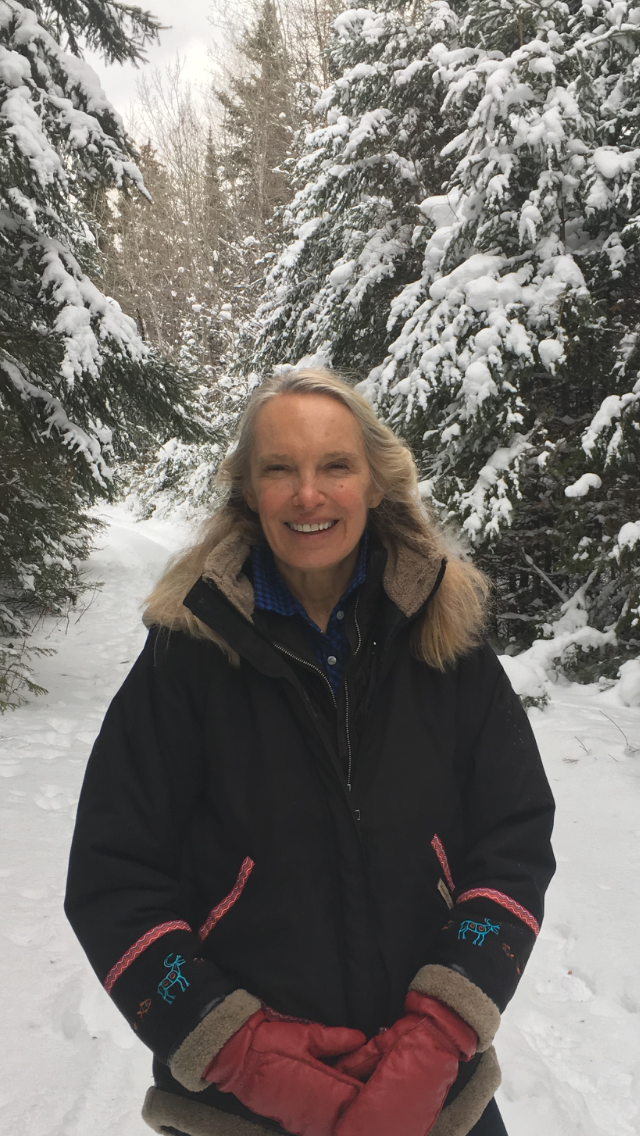Patricia Fortier’s co-worker gave her the nickname Mrs. World Crisis, and after a lengthy career in government often handling crisis management, it’s not hard to see why.
Fortier was raised in Pine Falls, Manitoba along with her two sisters. After finishing high school, she received a scholarship to the University of Winnipeg in a liberal arts program, which she attended for one year.
Quickly realizing she didn’t enjoy the program she was in, she took off on a hitchhiking trip across Europe in the mid 1970s with her sister, Verla. The pair crossed through the continent and at the end of their escapade, Fortier made a decision that would change the trajectory of her life: she went to Africa.
“Your life can change quite dramatically based on experiences,” said Fortier.
Accompanied by a friend, Fortier hitchhiked through Africa and fell in love with the desert, catching rides in trucks with nomads through the Sahara, often with a camel’s head resting on her lap.
“No one knew where I was, my parents thought I’d died,” said Fortier, “but that changed my life.”
She began studying African History at Queen’s University.
Along with a bachelors in African History, Fortier received a Master’s in Public Administration from Queen’s University, where she discovered a passion for municipal government. Fortier worked in Public Planning and Transportation before getting admitted to Foreign Services, after only writing the admission exam because her friend asked her to accompany them.
In the following years, she was posted across the world, including Chile, Costa Rica, America, India, Kenya and Zambia.
She recalls listening to bombs fall on Uganda during the civil war in the 80s and being one of the first to enter the Luwero Triangle during a genocide that took the lives of an estimated 300,000 civilians.
At the height of the AIDS epidemic, Fortier visited villages in Africa populated only by children and seniors after rebel forces carried the deadly disease through the continent, killing thousands.
“This all got me thinking about conflict,” said Fortier.
Fortier joined the United Nations division of Foreign Services in 1989, the same year the Berlin Wall fell.
“I was on the Security Council and suddenly we had a whole new universe to work with, and we did,” said Fortier, “once I had a taste of multilateralism and conflict management, it was pretty clear that this is what I was good at.”
Fortier spent the next few years working in Costa Rica and Peru in various Peacekeeping, Security and Human Rights related positions, as well as serving as the Weatherhead Fellow at Harvard University. She later became the Canadian Ambassador to the Dominican Republic, Bolivia and Peru.
Céline Heinbecker worked with Fortier in Lima as Second Secretary in the Political and Public Affairs section of the embassy, she is now a director at Global Affairs Canada.
“It was wonderful to see Patricia make close personal connections to everyone we met, she had a warm approach and people responded to that. Her connections were very useful for Canada and moving our files forward. I also appreciated that she enjoyed the local culture as much as she cared about politics,” said Heinbecker on her time working with Fortier.
As Ambassador, Fortier monitored relations between these counties and Canada as well as trade and safety, among other things, with a staff of over 100 people, on average.
“Some people call being an ambassador kind of lonely, there’s not really anyone you can talk to,” said Fortier, “and you have to be ready to work hard.”
Fortier started work at sunrise with meetings scheduled by the half hour through the day. Her daily responsibilities included presentations, speeches, events, and often late night work calls from the president.
Through the stress of high-demand jobs and crisis management, Fortier said the best way to deal with stress is to ‘just breathe.’ She also found physical activity and time with her family helped her deal with the stressful parts of her various jobs, which were outweighed by the ‘marvellous’ parts, according to Fortier.
Fortier said experience is helpful in dealing with traumatic situations. On September 11, 2001, Fortier was at the Canadian embassy in Washington, DC. which is stationed in between the Congress building and the White House.
“One of the things I remember vividly was standing on the roof of the embassy watching the plane that hit the Pentagon explode, and Washington is a marsh, so you can feel it under your feet,” said Fortier.
One of her final missions was acting as Head of Operations for the Syrian Refugee Movement, helping to bring 60,000 refugees into Canada in three months. Not long after, she retired in 2016.
Fortier continues to work as a director on various boards, as well as mentoring students.
David Graff is one of Fortier’s mentees. He moved to Ottawa in 2018 to get his master’s degree in political science from the University of Ottawa, where he was paired with Fortier through a mentoring program. He graduated in June 2021 and said he owes much of his success to Fortier.
“She really encapsulates serving above all else, service above self. Patricia is Patricia, and what that means is supporting, caring, and including everyone. She helps you become the best version of yourself,” said Graff.




